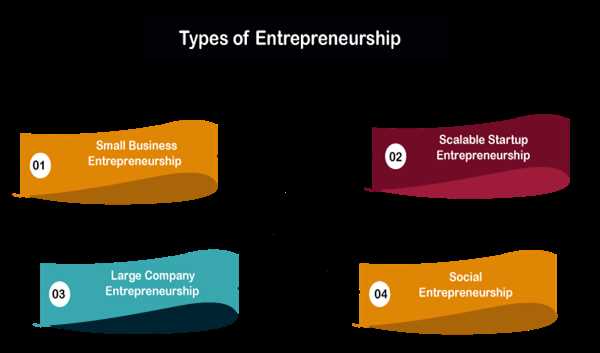Entrepreneurship is the process of creating or starting a new business venture to make a profit. Entrepreneurs are individuals who are willing to take calculated risks to bring their ideas to life. Over the years, various types of entrepreneurship have emerged, each with its characteristics and challenges.
Small Business Entrepreneurship
Small business entrepreneurship refers to the starting and managing of a small business. This type of entrepreneurship is characterized by the owner having complete control over all aspects of the business, including operations, marketing, and finances. The main objective of small business entrepreneurship is to provide products or services to a local market and build a loyal customer base. Examples of small businesses include local retail stores, restaurants, and service providers.
Social Entrepreneurship
Social entrepreneurship refers to creating businesses with a social impact as their primary goal. Social entrepreneurs aim to address social and environmental issues using business principles and practices. The primary objective of social entrepreneurship is to create positive change in the world rather than to maximize profit. Examples of social entrepreneurs include individuals who start companies that provide clean water, sustainable energy, or education to underprivileged communities.
High-Growth Entrepreneurship
High-growth entrepreneurship refers to the creation of businesses that have the potential to grow rapidly and become large companies. This type of entrepreneurship is characterized by a focus on innovation and a willingness to take risks to achieve rapid growth. High-growth entrepreneurs aim to create disruptive products or services that change how people live or work. Examples of high-growth entrepreneurship include tech startups that develop new software, hardware, or internet-based products.
Lifestyle Entrepreneurship

Lifestyle entrepreneurship refers to the creation of businesses that allow entrepreneurs to maintain a desired lifestyle. This type of entrepreneurship is characterized by a focus on personal fulfilment and the ability to balance work and personal life. Lifestyle entrepreneurs aim to create businesses that provide them with the income they need to live the life they want rather than solely focusing on maximizing profit. Examples of lifestyle entrepreneurship include individuals who start businesses in the arts, travel, or food and beverage industries.
Scalable Startup Entrepreneurship
Scalable startup entrepreneurship is a type of entrepreneurship that involves starting a business that can grow rapidly with limited resources. In this type of entrepreneurship, the focus is on creating a scalable business model that can accommodate rapid growth and expansion. A scalable startup entrepreneur identifies a problem or a gap in the market and creates a product or service to solve the problem, which can be rapidly scaled up with increasing demand. Examples include Airbnb, Uber, etc.
Large Company Entrepreneurship
Large company entrepreneurship is a type of entrepreneurship that involves taking an established company and transforming it into a more innovative, agile and customer-focused organization. This type of entrepreneurship focuses on revitalizing the existing business, making it more competitive and expanding it into new markets. The goal of large company entrepreneurship is to transform an established company into a dynamic, innovative, and customer-focused organization. Examples include Amazon, Apple, etc.
Conclusion
Entrepreneurship takes many forms, each with its own set of characteristics and challenges. Whether an entrepreneur is starting a small business, creating a social enterprise, pursuing high-growth opportunities, or striving for personal fulfilment, the common goal is to bring their ideas to life and positively impact the world. By understanding the different types of entrepreneurship, individuals can better understand their strengths and interests and pursue the type of entrepreneurship that best aligns with their goals and values.